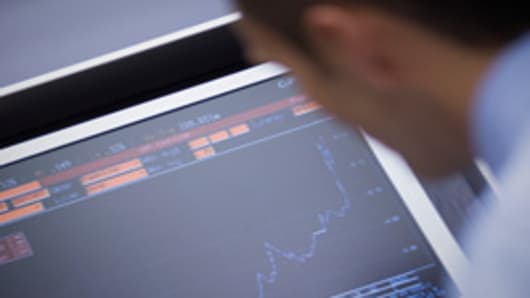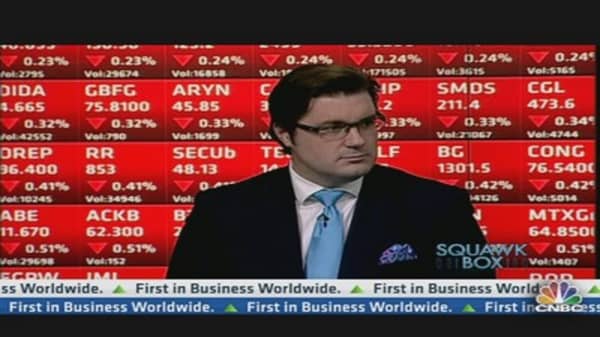Gone are the days when investment banks looked only for the numerical whiz kids to help them in their investment decisions. Now, they use psychologists to get a better insight of how investors' minds and the markets work.
"The classical models of economics make this assumption that we are all completely rational, all the time and all of finance theory is based around that," Greg Davies, head of behavioral and quantitative finance at Barclays, told CNBC. "But we don't have to look around us too far to realize that we're not entirely rational all the time and, in fact, markets are driven to a very large extent — particularly in the short-term — by issues of anxiety, stress and enthusiasm."
Davies told CNBC Europe's "Squawk Box" that, as a behavioral expert at Barclays, he uses his knowledge to try to help clients become better investors.
"[We do this] by helping them to understand their personalities better, their own proclivities, and how to make better long-term investing decisions by controlling their emotions," he said.
Global markets dipped on negative earnings reportsfrom business giants such as Apple and Amazon.com on Thursday, but Davies said that current market fluctuations "were neither here nor there" — what mattered was investor liquidity.
(Read More: Corporate Jitters Are Starting to Rattle Economy)
"Keynes said the markets can stay irrational for longer than you can stay solvent, and what he was talking about was people running out of financial liquidity, even if they were in a good investment," he said. "In those sorts of times, when we get sequences of bad events in a row, people do run out of liquidity. But it's not financial liquidity, it's emotional liquidity."
Analyze This
Davies told CNBC on Friday that once investors ran out of emotional liquidity, they tended to lose their resilience in the marketplace and sold at the bottom. This was probably, he added, the "biggest error people make."
The whipsaw movement in global markets in recent years has seen many retail investors abandon stocks, leading to a drop in equity volumes and a surge in safe havens. Davies said although the capital is out there, people want to invest in assets in which they feel emotionally comfortable.
"There is quite a lot of capital out there but it's not being invested, people are sitting on it or investing it into perceived safe assets or tangibles," he said. "There has been a surge in collectibles, because people feel more emotionally comfortable buying an art work that they can see touch and feel than actually investing productively into the economy."
Davies added: "The issue we have right now is that since 2008, we've had a long period of ups and downs, which over time has started to drain people's reservoir of emotional reserves." He noted that there is now a "fatigue premium" in the markets after four years of credit crisis in the euro zone.
"There comes a point where you think, 'Even if I know that the right thing to do in the long-run is to get invested and stay invested, it's simply too emotionally discomforting to do so,' " he said.
Davies said that hedge funds were not making the most out of the situation and were finding it harder to employ their knowledge to a changing market. "You don't have to be a hedge fund to take advantage of the situation. You have to overcome your own anxiety and take a long-term view," he said. "It doesn't require doing anything particularly clever, it doesn't require a crystal ball, it just requires figuring out how to control your decision making."





